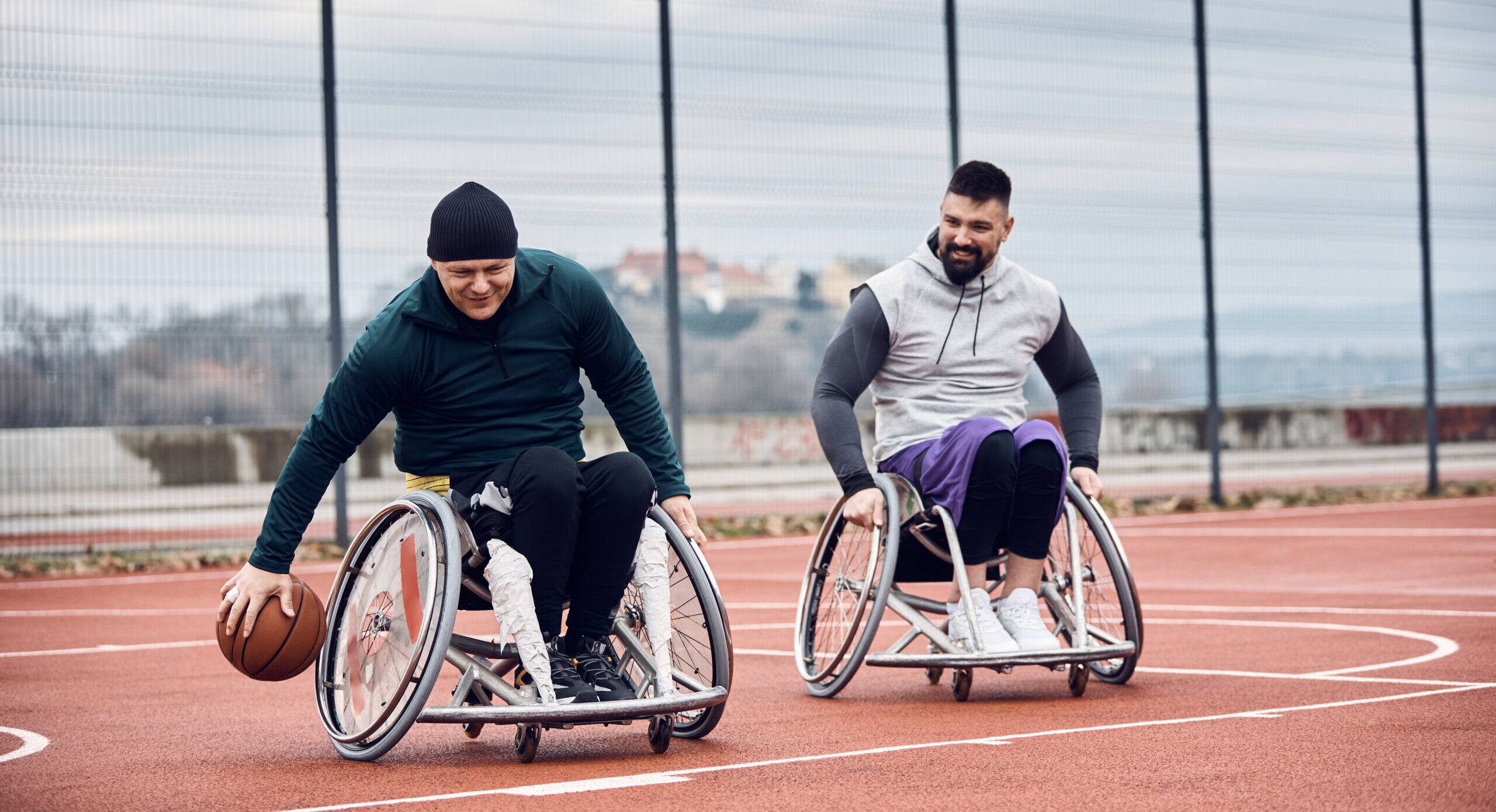Inclusive Health
NIH designated people with disabilities as a population with health disparities in 2023. This recognition marked the culmination of years of public input and advocacy from the disability community to make inclusive health a national priority. It also aligned with years of work to take on the social and environmental factors that lead to health disparities for many across the disability community. Inclusive health promotion is recognized as an important area for advancing health equity for people with disabilities.
Creating an environment that supports inclusive health is the work of societal transformation. Beyond access to healthcare providers and facilities, social drivers affect people with disabilities in a variety of ways. Things like housing and transportation access or having a livable income can affect community participation. Being able to access public spaces and parks is also a basic necessity for maintaining an active lifestyle. The availability of adequate supports through HCBS can directly affect access to good nutrition and healthy meals. And people with disabilities too often lack access to essential health information in usable formats. These are just a few ways that health is affected by our daily environment and experience.
The following projects represent some key collaborations where AAHD has supported efforts to advance inclusive community health through health promotion.
Inclusive Health Communities
National Center on Health, Physical Activity and Disability (NCHPAD), University of Alabama at Birmingham (UAB)
2016-2021
AAHD collaborated with the National Center on Health, Physical Activity and Disability (NCHPAD) on a five-year project to create Inclusive Health Communities. This work was supported by a cooperative agreement funded by the CDC’s National Center on Birth Defects and Developmental Disabilities (NCBDDD).
About – Reversing the disproportionately higher rates of obesity among children and adults with disability requires a comprehensive and coordinated approach. Policy, system and environmental changes (PSE) are needed to create inclusive health communities where healthy lifestyle choices are supported for people with disabilities. NCHPAD used their knowledge-to-practice framework (NCHPAD Knowledge Adaptation, Translation and Scale up, or N-KATS) to expand inclusive ‘best practices’ to transform communities into places that support and promote healthy lifestyles for people with disabilities.
As part of this project, scalable best practice resources were developed and disseminated to national networks and partners. Inclusive health promotion trainings were conducted with service providers. Guidelines for community transformation looked at the built environment, equipment, services, instruction, and policy. AAHD supported with subject matter expertise, material dissemination, outreach and evaluation as key components of this project.
Health Promotion for People with ID
Special Olympics International
2016-2021
AAHD collaborated with Special Olympics International (SOI) on this 5-year project to enable more inclusive health information for people with Intellectual Disabilities (ID). This initiative was about normalizing the inclusion of people with ID in mainstream health policies, programming and services, training programs and funding streams. It used strategic dissemination and outreach strategies to build public awareness of the health needs of people with ID. This work was supported by a cooperative agreement funded by the CDC’s National Center on Birth Defects and Developmental Disabilities (NCBDDD).
About – The project utilized the Social Ecological Framework to implement local health promotion programming. It focused on the SOI Healthy Athletes program and a network of 52 Special Olympics (SO) programs to strengthen the nation’s capacity for inclusive health. Numerous health disparities exist for people with ID. This initiative focused on healthy weight promotion to address high obesity rates within this population. It provided training tools and resources to health influencers to deliver inclusive community health programs. AAHD supported with dissemination and outreach, both internally to SOI programs and externally to health influencers. AAHD identified evidence-based practices and conducted material review on resources valuable to the SO community. The Association of University Centers on Disabilities (AUCD) and the American Academy of Developmental Medicine and Disability (AADMD) also supported on this project.
Our Partnership with Lakeshore
The Lakeshore Foundation is an internationally recognized organization based in Birmingham, Alabama. They envision a world in which every person has the opportunity to achieve a healthy, active independent life. Their work is to encourage active, healthy and independent lifestyles for people with disabilities through physical activity, research, advocacy, policy and health promotion. They are currently involved in providing training for 12 competitive sports;14 local, national and global advocacy initiatives; 92 aquatic, fitness and recreation programs; and 20 research projects. Lakeshore is a training facility for the Paralympics. It is a resource open to anyone in the state living with a physical disability or chronic health condition. Lakeshore works closely with the National Center on Health, Physical Activity and Disability (NCHPAD) at the University of Alabama in Birmingham, AL. AAHD is honored to serve as Lakeshore’s advocacy voice in Washington, DC. Our Director of Policy helps advance their policy work.
